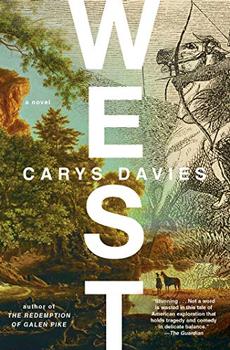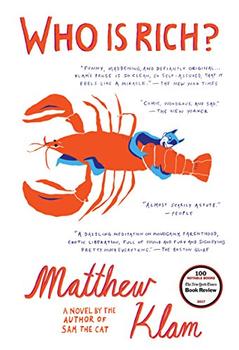Summary | Excerpt | Reviews | Beyond the book | Read-Alikes | Genres & Themes | Author Bio

A New American Journey
by Rinker BuckAn epic account of traveling the length of the Oregon Trail the old-fashioned way—in a covered wagon with a team of mules, an audacious journey that hasn't been attempted in a century.
Spanning two thousand miles and traversing six states from Missouri to the Pacific coast, the Oregon Trail is the route that made America. In the fifteen years before the Civil War, when 400,000 pioneers used the trail to emigrate West - scholars still regard this as the largest land migration in history - it united the coasts, doubled the size of the country, and laid the groundwork for the railroads. Today, amazingly, the trail is all but forgotten.
Rinker Buck is no stranger to grand adventures. His first travel narrative, Flight of Passage, was hailed by The New Yorker as "a funny, cocky gem of a book," and with The Oregon Trail he brings the most important route in American history back to glorious and vibrant life.
Traveling from St. Joseph, Missouri, to Baker City, Oregon, over the course of four months, Buck was accompanied by three cantankerous mules, his boisterous brother, Nick, and an "incurably filthy" Jack Russell terrier named Olive Oyl. Along the way, they dodge thunderstorms in Nebraska, chase runaway mules across the Wyoming plains, scout more than five hundred miles of nearly vanished trail on foot, cross the Rockies, and make desperate fifty-mile forced marches for water. The Buck brothers repair so many broken wheels and axels that they nearly reinvent the art of wagon travel itself. They also must reckon with the ghost of their father, an eccentric yet loveable dreamer whose memory inspired their journey across the plains and whose premature death, many years earlier, has haunted them both ever since.
But The Oregon Trail is much more than an epic adventure. It is also a lively and essential work of history that shatters the comforting myths about the trail years passed down by generations of Americans. Buck introduces readers to the largely forgotten roles played by trailblazing evangelists, friendly Indian tribes, female pioneers, bumbling US Army cavalrymen, and the scam artists who flocked to the frontier to fleece the overland emigrants. Generous portions of the book are devoted to the history of old and appealing things like the mule and the wagon. We also learn how the trail accelerated American economic development. Most arresting, perhaps, are the stories of the pioneers themselves—ordinary families whose extraordinary courage and sacrifice made this country what it became.
At once a majestic journey across the West, a significant work of history, and a moving personal saga, The Oregon Trail draws readers into the journey of a lifetime. It is a wildly ambitious work of nonfiction from a true American original. It is a book with a heart as big as the country it crosses.
Buck is a mildly diverting memoirist, and the chronicle of his personal adventure is not without its moments – though it does suffer from a certain monotony, as only so much narrative momentum can be generated through the recitation of the daily tasks of hitch the mules, steer the wagon, find a campsite, unhitch the mules, cook dinner, sleep under the stars. But his research into the teeming and turbulent existence of the original Oregon Trail pioneers is utterly riveting, from his discussions of how to choose the perfect mule for wagon transport to the ravages of cholera along the trail...continued
Full Review
 (1079 words)
(1079 words)
(Reviewed by James Broderick).
One of the defining qualities of the American character has always been restlessness. But even within the traditions of that locomotive impulse, the so-called "Great Migration of 1843" stands out as a singularly significant upheaval in the history of continental relocation – and a central concern of Rinker Buck's The Oregon Trail: An American Journey.

Prior to the early 1840s, what today is labeled the Oregon Trail was really more of a set of loosely connected overland routes through Missouri, Kansas, Nebraska, Wyoming, Idaho, and Oregon. After dispatches from the Oregon territory – from Christian missionaries and fur trappers testifying to the abundant wealth of natural resources and the stirring ...

If you liked The Oregon Trail, try these:

by Carys Davies
Published 2019
An exquisite, slender first novel set on the American frontier about a restless widower who heads west on a foolhardy and perilous expedition in search of unknown animals, leaving his intrepid young daughter behind to fend for herself at home.

by Matthew Klam
Published 2018
A provocative satire of love, sex, money, and politics that unfolds over four wild days in so-called "paradise" - the long-awaited first novel from the acclaimed author of Sam the Cat.